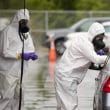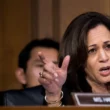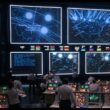Civil society: Needed more than ever
June 4, 2017
The Paris Climate Agreement is a potluck dinner. Every nation brings its own dish, which is called a Nationally Determined Contribution (NDC). Countries are now preparing their offerings for the “Facilitative Dialog” in 2018, which will be the first dinner. Follow-on dinners (“Stocktaking” meetings) are to be held every five years, beginning in 2023. The signatories are optimistic that the agreement will create positive pressures on all participants, as happens with most potluck dinners.
National governments would have lower expectations for the agreement, were it not for the implicit presence of global civil society at the table. National and international non-governmental institutions, subnational governments, pension funds, large and small companies, as well as individuals on their own, are being counted on to monitor progress—to evaluate each NDC for transparency, self-consistency, credibility, and ambition. Each nation’s desire for praise and fear of embarrassment constitute the agreement’s compliance mechanism.
The agreement was designed to be robust, and it is now getting its first test. President Trump, fulfilling his campaign promise and the expressed wishes of nearly every Republican Party candidate in the 2016 election, has now begun the process of withdrawing the US government from the agreement. But he cannot extract US civil society from the agreement. Indeed, the administration’s drawn-out, theatrical withdrawal has engaged many non-governmental actors more deeply than a fast decision to withdraw would have. For example, some industry leaders, who otherwise might have chosen to stay silent, are now on the record, forcefully affirming the need for a successful agreement.
For the US science community, there is an immediate assignment, which is to protect Earth system science. Scientists, primarily in other fields (to preempt the criticism that the advocates are self-serving), must make the case persuasively that here is an arena for US leadership that transcends politics. Any US politician inclined to promote legislation that tells NASA that its mission must no longer include looking at the Earth, for example, must be dissuaded from such a course. Broad bipartisan agreement must surely be within reach in favor of the US doing not only its share, but more than its share, to accelerate the pace of learning about the emergent disruptions of the Earth system, some of which may arrive quickly and others slowly. Only with such knowledge can national responses be cost-effective and wise.
Robert Socolow
professor emeritus and senior research scholar
EXPERT COMMENTARY
Princeton University













